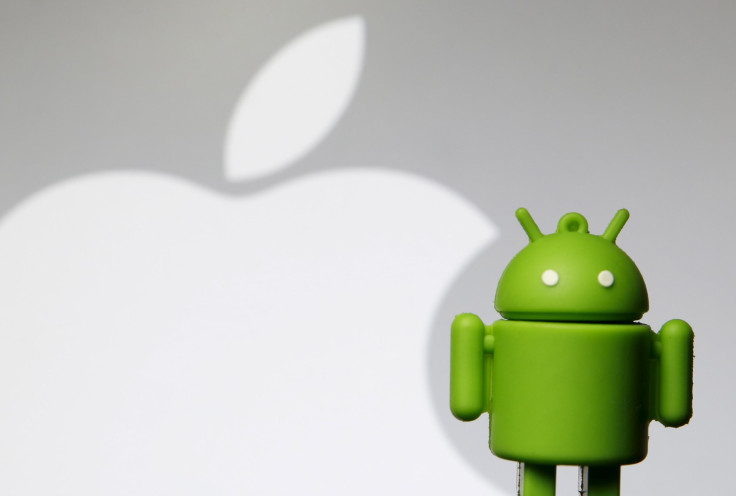Can Americans Trust Apple And Google? Tech Giants Face Privacy Concerns Over Coronavirus Contact Tracing App

KEY POINTS
- 41% of those queried in the Washington Post-University of Maryland poll said they would use such an app
- 18% said they don't have smartphones, which makes them unable to use the app
- Democrats were nearly 50% more likely to say they would use the app being developed by Google and Apple
Big tech’s plan to track coronavirus with an infection alert app may have run into a snag: A poll released
Wednesday indicates nearly 60% of Americans are unwilling or unable to use it.
Google and Apple, working with public health officials and university researchers, are working on apps that would notify people about contact with someone who had tested positive for the virus, which has infected more than 3.1 million people worldwide, more than 1 million in the U.S., and killed more than 218,000, more than 58,000 in the U.S.
The two tech giants have said the underlying software could be ready for release this week, allowing public health agencies to opt-in and develop their own apps and contact protocols. A second phase of the software would take the app worldwide.
The apps would work off Bluetooth and track users’ whereabouts. Those who are notified they are infected would receive a code that then could be used to alert those with whom they had contact. The companies said the information would not be saved to a central database.
In Australia, an app released by the government Sunday has been downloaded by 8% of the population while about 20% of Singaporeans have downloaded an app released last month.
A Washington Post-University of Maryland poll indicates just 41% of the 1,008 adults queried April 21-26 said they would use an app that allows people to report anonymously whether they had tested positive for coronavirus, with 16% saying they definitely would not use it and 18% saying they don’t have a smartphone.
Fifty-nine percent said they would be comfortable reporting a positive coronavirus test to an anonymous app.
Those expressing worry about contracting COVID-19 are more apt to use such an app than those who are not, 59% vs. 35%. Democrats were more likely to say they’d use the app (61%) than Republicans (38%) with independents in the middle (48%).
The lack of smartphones among seniors, who fall into the high-risk category for contracting the deadly form of the disease, could be a major hurdle to the effectiveness of the app. Just 53% of those over 65 have smartphones and even fewer Americans over 75 have them (40%).
Smartphone users indicated they don’t really trust the tech giants to keep the data anonymous, with just 43% expressing confidence. The percentage rose to 56% when asked about universities and 57% when asked about public health departments. Respondents also had more faith in their insurance companies, 47%, than they did in Google and Apple.
“I don’t feel like they have a good track record of taking care of people’s privacy and data. And I don’t want to give them more if I don’t trust them,” Brent Weight, 43, of Rigby, Idaho, told the Washington Post. “Seems like every other day you’re hearing of a data breach in a big company, and they’re losing credit card information and everything else. For them to just tell us it’s going to be safe and anonymized, I’m not going to take them at face value.”
© Copyright IBTimes 2025. All rights reserved.





















